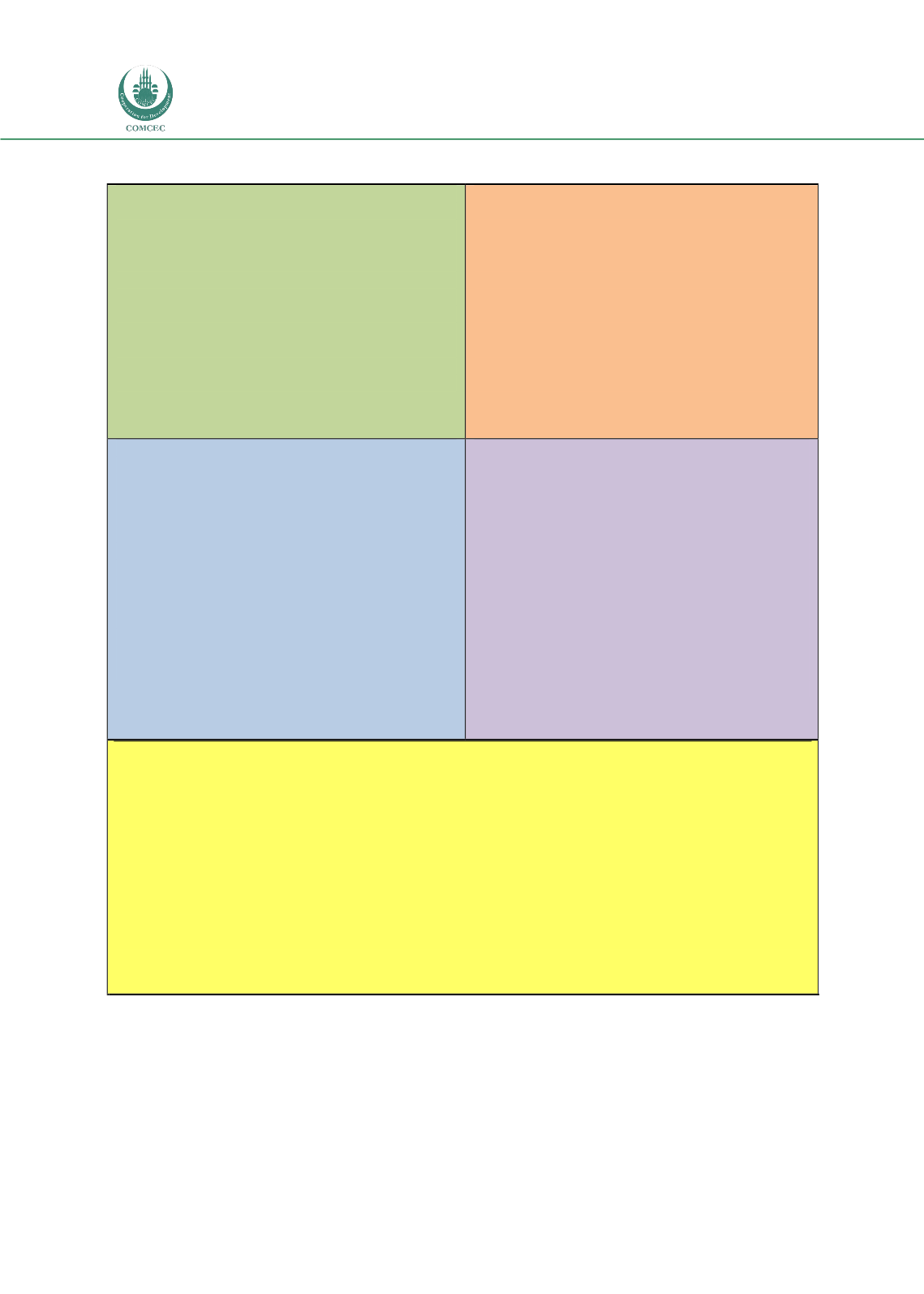

Improving Agricultural Statistics in the COMCEC Region
116
Table 67: SWOT Analysis and Needs Assessment for Sudan
OPPORTUNITIES
High demand for agricultural statistics users
High political support
High external funding support for agricultural
statistics
Recognition of an agrarian based national
economy
Production of statistics to improve agricultural
export market started
Emerging issues of global warming, food poverty
and climate change
THREATS
Continued low public budget allocation from the
Government of Sudan, given the disastrous
economic situation of the country.
Continued internal conflicts and civil wars,
Security problems effects effective data
collection
Low statistical awareness of the politics and
importance of agricultural statistics
Extreme overlapping of the institutions
producing agricultural statistics
STRENGTHS
Presence of qualified but few statisticians who
could lead the work
Presence of specialized sections for producing
agricultural statistics
Presence of a Main Statistics Library
Availed facilities for data processing and analysis
and GIS unit
CBS/MoAI use agricultural statistics in policy
planning
Strong work relationship with CBS and MoAI
Existence of national statistics system to
streamline agriculture information
WEAKNESSES
Low budget allocations
Low institutional capacities
Less satisfaction of statistics users
Humble sampling and questionnaires design
Poor estimation of livestock and forestry
products because of lack of actual surveys
The last agricultural census was in the 1960s
All agricultural resource data are estimates
CBS collating data from MoAI
Does not cover all of Sudan and its districts
Lack of policies for the dissemination and use of
agricultural statistics
NEEDS
Participation of agricultural statistics staff in all the statistical trainings and workshops Building the
capacity in MoAI in terms of individual and enabling environment levels.
Developments of agricultural holdings register in addition, and subsequent farm holding surveys.
Routine collection of farm gate prices and variable and fixed costs micro data for all agricultural
commodities including forestry based and livestock products.
Consider the MoAI to take full account for the lower parts (production processes agricultural processing
enterprises) of the agricultural Statistics Value Chain.
Capacity improvement of senior and mid-level staff is needed through on the job learning for data
collection, data processing data analysis, presentation of statistics, agricultural and food security macro
indicator analysis, software including SPSS and STATA and professional writing.
Initiation of a policy and advocacy dialogue between all institutions concerned with agricultural statistics,
donors and the Sudan government

















